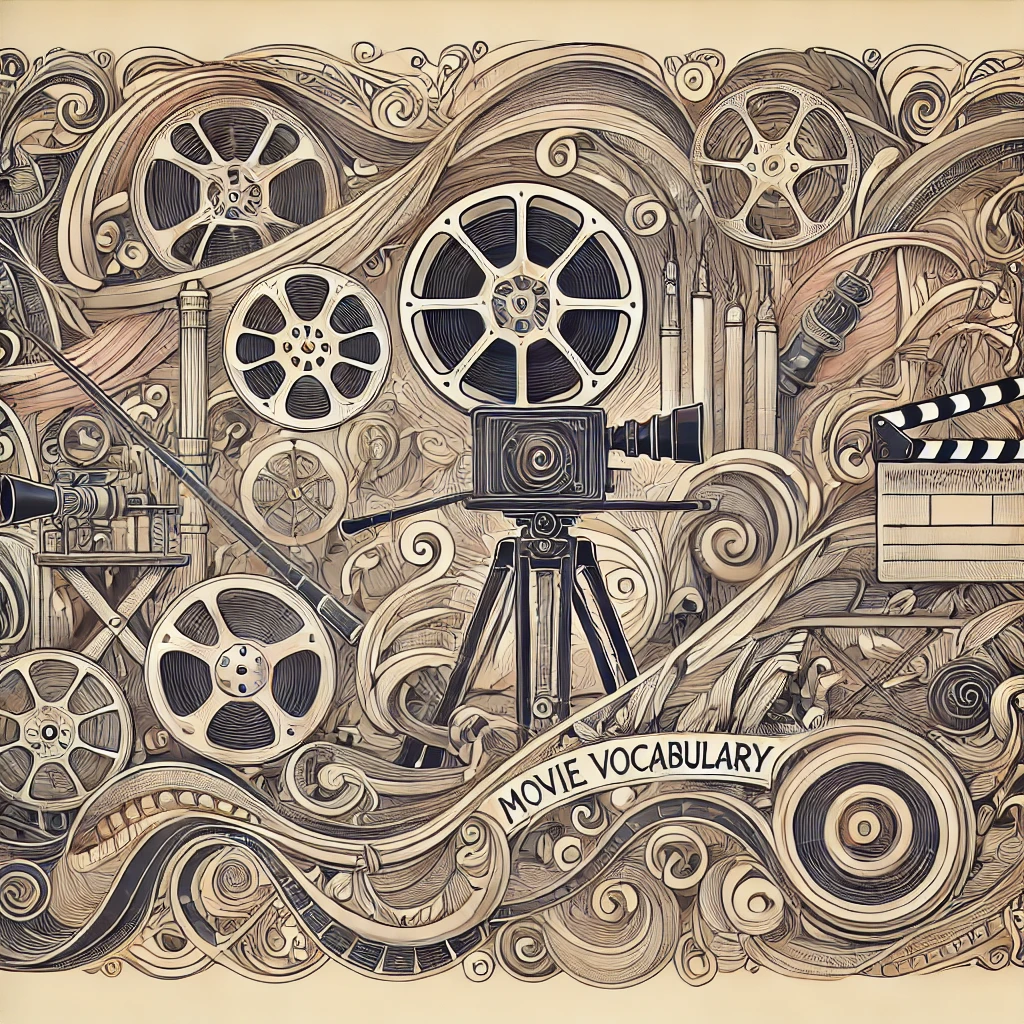ADVANCED MOVIE VOCABULARY
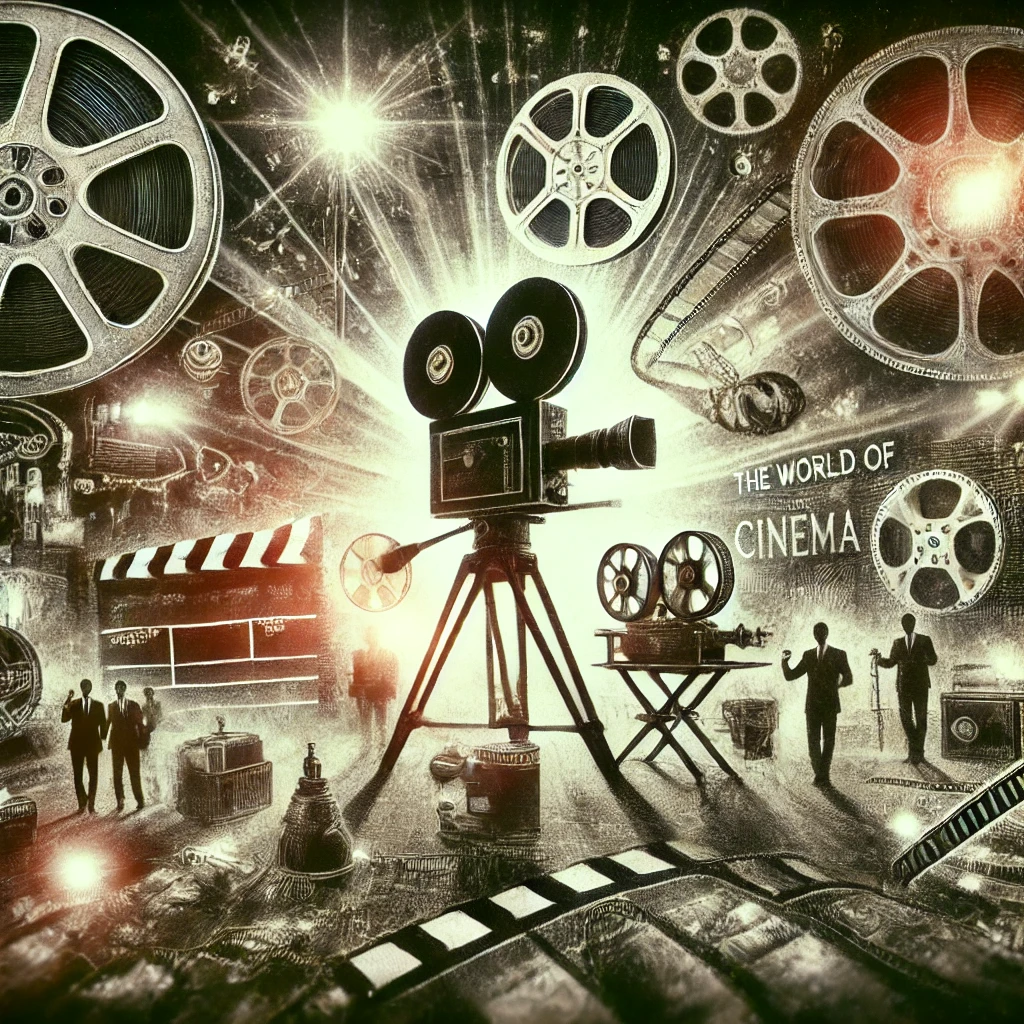
Movies are a significant part of our culture and entertainment, and knowing the right vocabulary can help you discuss, critique, and appreciate films more deeply. This lesson will equip you with essential movie-related terms, their meanings, and how to use them in real-life situations.
Learning goals
Understand Movie Vocabulary: Learn the meanings of advanced movie-related terms.
Apply Vocabulary in Real Life: Use movie vocabulary accurately in discussions and critiques.
Enhance Communication Skills: Improve your ability to express opinions and analyses about films.
Expand Cultural Knowledge: Gain insights into the film industry and its terminology.
Content
Key Vocabulary
Genre: A category of film characterized by similarities in form, style, or subject matter.
Example: “My favorite movie genre is science fiction.”
Cinematography: The art of making motion pictures, including the camera work and lighting.
Example: “The cinematography in that movie was stunning, especially the use of light and shadow.”
Plot: The sequence of events that make up a story in a film.
Example: “The plot of the movie was intricate and kept me on the edge of my seat.”
Soundtrack: The recorded music accompanying and synchronized to the images of a film.
Example: “The soundtrack of the film was so emotional, it really enhanced the story.”
Director: The person responsible for the creative aspects of a film, including overseeing the cast and crew.
Example: “Steven Spielberg is a renowned director known for his blockbuster films.”
Protagonist: The main character in a movie, often a hero or heroine.
Example: “The protagonist of the film faced many challenges but ultimately prevailed.”
Antagonist: A character or force in conflict with the protagonist.
Example: “The antagonist in the movie was very well-developed and complex.”
Special Effects: Visual or audio effects used to create illusions or enhance scenes.
Example: “The special effects in the movie were so realistic, they brought the fantasy world to life.”
Script: The written text of a film, including dialogue and instructions for actors and crew.
Example: “The script was well-written and full of witty dialogue.”
Editing: The process of selecting and assembling the various shots into a coherent sequence.
Example: “The editing was seamless, making the movie flow smoothly from scene to scene.”
Examples of Movie Vocabulary Usage
Discussing a Movie: “I loved the cinematography in ‘Inception.’ The director did an excellent job.”
Writing a Review: “The plot was engaging, but the soundtrack was the real standout.”
Analyzing a Scene: “The protagonist’s struggle against the antagonist was highlighted by the brilliant editing.”
Recommending a Film: “If you enjoy action movies, you’ll appreciate the special effects and fast-paced plot.”
Class Presentation: “For my project, I analyzed the script and character development in ‘The Godfather.'”
Discover more about the various aspects of movies in the following presentation:
Here are some engaging and educational movies. These films are great for improving English skills and understanding different accents, vocabulary, and cultural contexts.



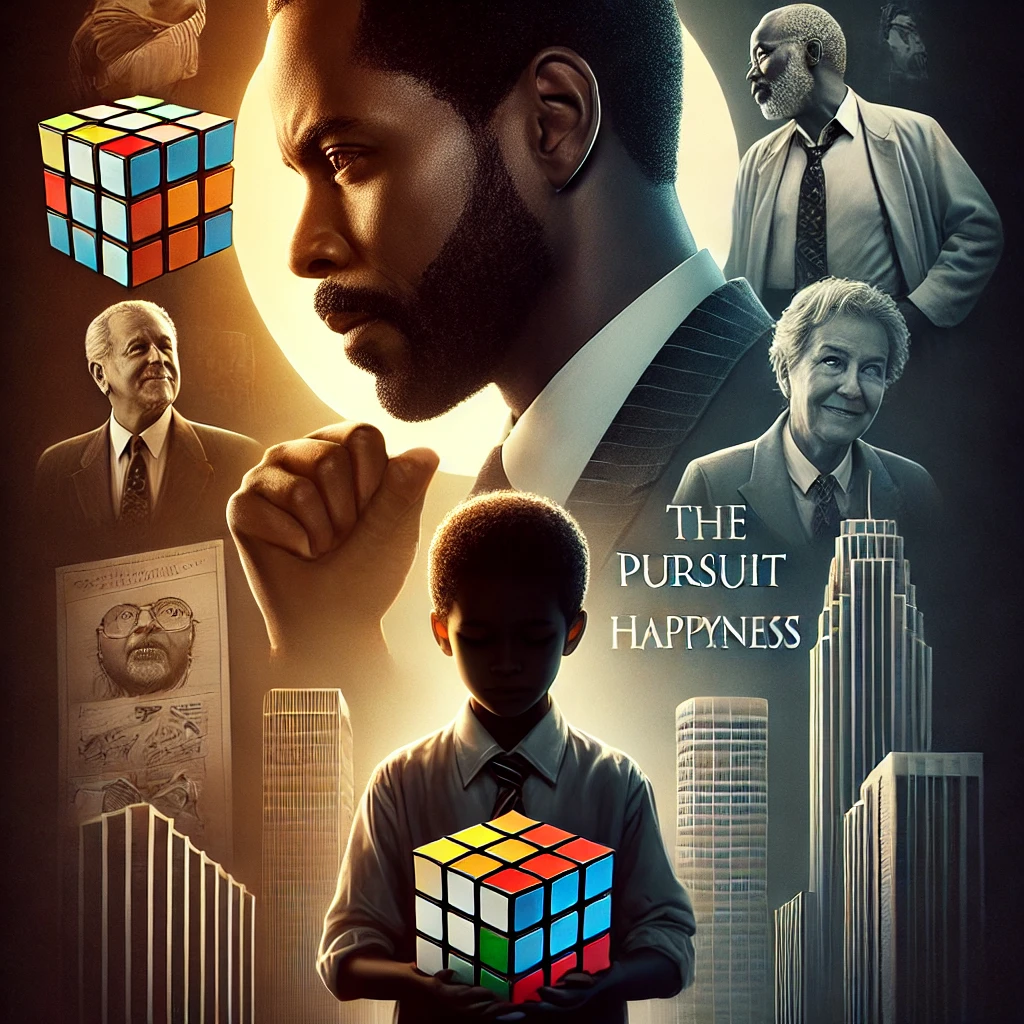
Learning Activities
EGB
Movie Genre Match-Up
Objective: Learn and categorize different movie genres.
Instructions:
- Preparation: You will be given a list of movie genres and a list of movie titles.
- Task: In small groups, match each movie title with the correct genre.
- Class Review: Discuss the matches and why each movie fits into its genre.
- Example: “Titanic” – Romance/Drama, “Star Wars” – Science Fiction.

Movie Vocabulary Bingo
Objective: Reinforce understanding of movie vocabulary through a fun game.
Instructions:
- Preparation: You will be given bingo cards with different movie vocabulary terms.
- Game: As the teacher calls out the definitions, you have to mark the corresponding terms on your bingo cards.
- Winner: The first student to get a bingo (a line of marked terms) wins a prize.
- Example: The teacher calls out “The art of making motion pictures” – Students can mark “Cinematography.”
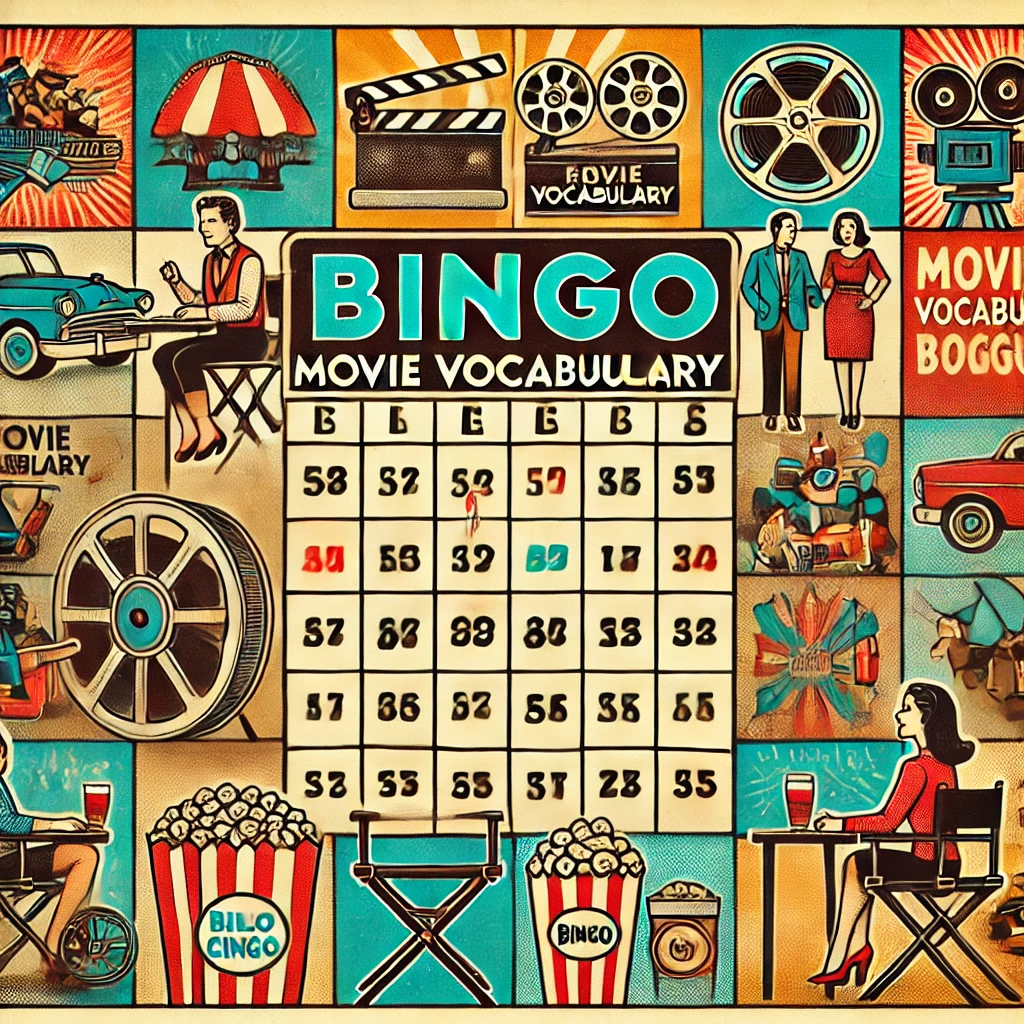
BGU
Movie Review Writing
Objective: Use movie vocabulary in writing a review.
Instructions:
- Task: Write a short review of a movie you recently watched, incorporating at least five vocabulary terms.
- Peer Review: Exchange reviews with a partner and provide feedback on vocabulary usage.
- Class Sharing: Share some reviews with the class and discuss the films.
- Example: “The cinematography in ‘Interstellar’ was breathtaking, and the plot kept me intrigued throughout.”
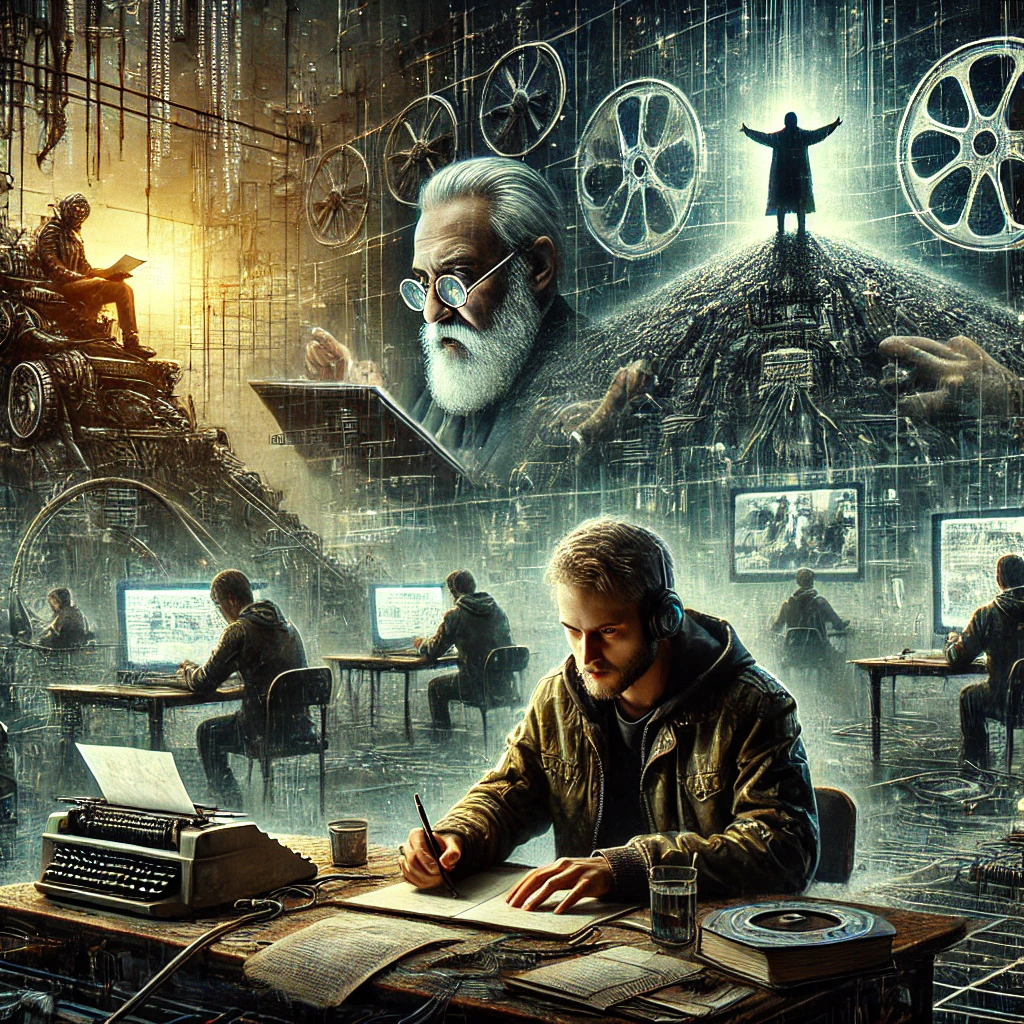
Role-Play: Movie Critic
Objective: Practice speaking skills and using movie vocabulary in discussions.
Instructions:
- Pairs: Pair up and take turns being the movie critic and the interviewer.
- Task: The critic reviews a movie, using vocabulary terms, while the interviewer asks questions to prompt further details.
- Class Presentation: Some pairs present their role-play to the class.
- Example: “As a critic, discuss the special effects in ‘Avatar’ and how they contributed to the overall experience.”

EGB & BGU ACTIVITY: Discover Your Own Movie Vocabulary
Objectives:
- Expand Vocabulary: Develop a personalized list of advanced movie vocabulary.
- Improve Research Skills: Enhance your ability to find and understand new vocabulary independently.
- Apply Vocabulary: Use newly learned movie vocabulary in discussions and writing.
- Foster Collaboration: Work collaboratively to share and learn from peers.
Instructions:
Part 1: Research and Discovery
- Objective: Identify and understand new movie-related vocabulary terms.
- Task: Individually, use the internet, film reviews, or movie-related articles to find 10 new movie vocabulary terms that are not in the provided list.
- Details:
- Definition: Write down the definition of each term in your own words.
- Usage: Find or create a sentence using each term to demonstrate understanding.
- Example: If you find the term “Diegetic Sound,” define it as “sound that originates from within the film’s world,” and use it in a sentence like “The diegetic sound of the clock ticking added tension to the scene.”
Part 2: Group Sharing and Compilation
- Objective: Share and expand your vocabulary list through collaboration.
- Task: Form small groups (3-4 students). Each student shares their list of 10 new terms with the group.
- Compilation:
- Combine the individual lists to create a comprehensive group list.
- Ensure each term has a clear definition and example sentence.
- Each group member should learn the new terms contributed by their peers.
Part 3: Class Discussion and Presentation
- Objective: Present and discuss new vocabulary terms with the class.
- Task: Each group selects five of their most interesting or useful new terms to present to the class.
- Presentation:
- Define each term clearly.
- The teacher will provide example sentences to show how the terms are used.
- Class Discussion:
- Engage the class in a discussion about the terms presented.
- Encourage questions and further exploration of the terms.
Additional Tips for Success:
- Research Tools: Use reliable sources such as film critique websites, movie blogs, and online dictionaries specializing in film terminology.
- Note-Taking: Keep your notes organized and clear for easy sharing with your group.
- Engagement: Actively participate in group discussions and presentations to maximize learning.
